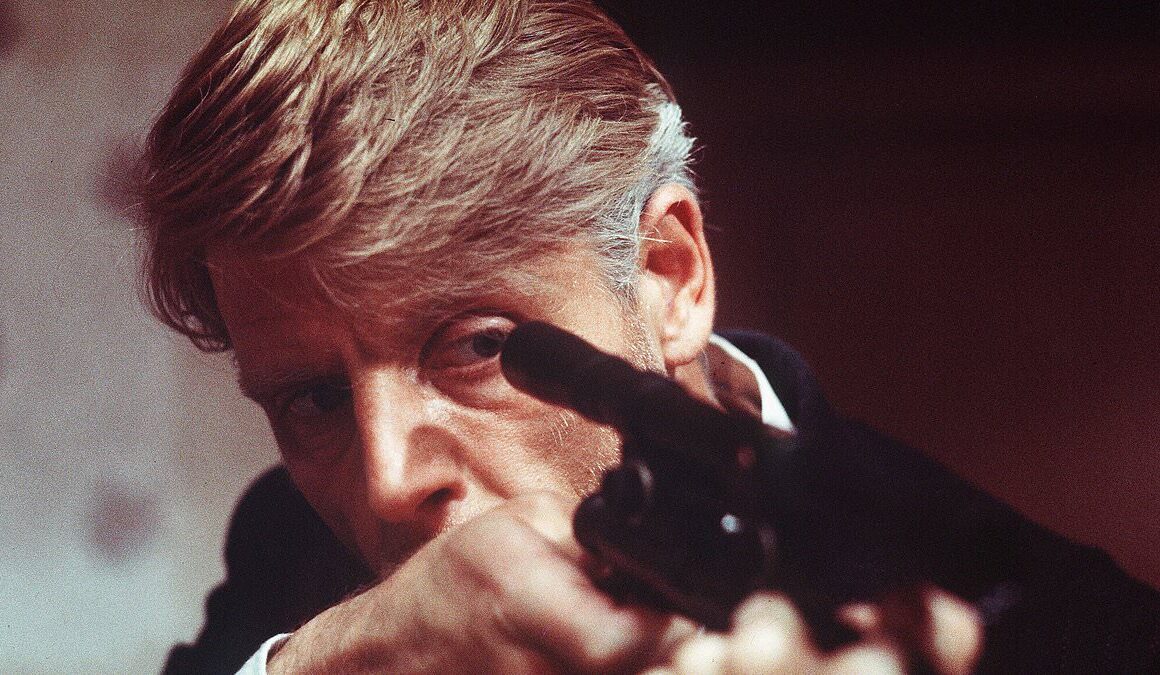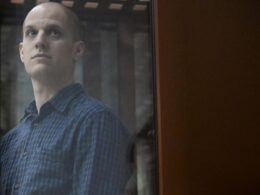It was with a hollow groan I learned recently that the mandarins at Sky Atlantic have done a huge, windy, multi-episode remake of The Day of the Jackal.
It’s to hit us on November 7; it has – needless to say – been ‘updated’ for a ‘contemporary’ audience and a glance at the trailer, released a few days ago, suggests it will be expensively awful.
A wretched fate for Frederick Forsyth’s trailblazing, 1971 howdunnit – in the tale he pecked out on a manual typewriter in just 35 days, he singlehandedly reinvented the thriller – and a pointless redoing of Fred Zinnemann’s classic 1973 film.
Indeed, this isn’t even the first remake: though The Jackal, starring Bruce Willis and Richard Gere and released in 1997, was justly panned.
Why waste time, money and public patience on revisiting perfection? Forsyth’s unputdownable tale – which, rarely in this genre, bears repeated re-reading – is a taut three-act drama, meticulously researched, set in a particular time and place.

Sky Atlantic have announced a remake of The Day of the Jackal, based on the 1971 novel by Frederick Forsyth
Begotten by a simple question: what if, instead of blundering around trying to top Charles de Gaulle themselves (and there was one very serious attempt) his enemies had instead hired, for a fat sum, a professional assassin completely unknown to the authorities?
And this in the France of 1963, then roiling in such political ferment that the murder of President de Gaulle really would have begotten societal collapse.
The 1973 flick is just as good as the book, with tension building throughout and an impressive ensemble-cast including Michael Lonsdale as a deceptively unassuming detective, Cyril Cusack’s creepy gunsmith and – Zinnemann took a chance on hiring an actor then so little known – Edward Fox as the gun-for-hire.
With a taste for good French food, a weakness for cravats, beautiful manners, an enchanting smile – and as lethal and amoral as a virus.
By the end of the movie – in a very English joke, the Jackal is finally undone by an unexpected kiss – he has killed six people without a flicker of conscience. Three of them with his bare hands.
Learned papers have been written on a key scene – when the Jackal, testing his ingenious ‘barebones’ rifle, shoots a melon – and the precise setting of the story is essential to the jeopardy that keeps you on the edge of your seat throughout.
For, in 1963, there was simply not the technology to ensnare a nameless, unknown assassin. There were no computers to search birth certificates in minutes, no mobile phones for police quickly to liaise, and no CCTV to record all cars entering France.
Incredibly, not till 2007 did Britain close a loophole in our passport rules to preclude what was famed as the ‘Day Of The Jackal fraud,’ applying for one (as the Jackal does) with a fake reference and the birth certificate of a long-dead child.

Edward Fox starred in the 1973 film adaptation of The Day of the Jackal
It is going to be far harder, however clever the chaps at Sky Atlantic think they are, to tell as fraught a tale convincingly in the world of 2024, or to believe that Eddie Redmayne will be as mesmeric (and terrifying) in the part as Edward Fox.
It will certainly not have the original audacity. In the early Seventies, everyone knew that Charles de Gaulle had not been assassinated in 1963. Indeed, when Forsyth in 1970 was hawking his novel around for publication, the haughty old thing was still alive.
Commercially, it simply should not have worked. And, yet, it did. Within two years, it has sold millions of copies worldwide. Fred Zinnemann’s film? It grossed over $16 million.
We have now become a culture apparently now so bereft of new, compelling stories of our own, and with so many risk-averse moneymen now in charge, that ‘content creators’ resort more and more to remakes.
Charlie and the Chocolate Factory, Endless Love, The Wages of Fear, The Talented Mr Ripley – at every turn, some maniacal bid to cap original glory.
Barry Norman thought so highly of that wonderful Hebridean romp – 1949’s Whisky Galore! – that he listed it in his hundred best films of all time.
Not that it stopped a 2016 redoing. The original, 1979 BBC dramatisation of Tinker Tailor Soldier Spy – starring the peerless Alec Guinness and which sweeps one in an instant back to 1970s managed-decline Britain – is quite big enough to look after itself.
There was no call for the dreich 2011 movie treatment. And Daphne du Maurier’s 1938 classic, Rebecca, has been adapted time and again for the screen large and small.
Ironically, the best – another 1979 BBC triumph, starring Johanna David, Jeremy Brett and Anna Massey – is today unobtainable, save for a foggy pirated version on YouTube.
Alfred Hitchcock’s 1940 treatment sugared up the ending and deliberately dialled down the criminality. Carlton Television’s 1997 version had an overwrought lesbian sub-text, even though the late Daphne du Maurier had repeatedly told interviewers she had never thought to imply such a thing.
And the woefully miscast Armie Hammer sank Netflix’s 2020 reprise.
What seems constantly to catch auteurs out is that Rebecca is an unblinkingly dark novel. The nameless heroine begins the tale as a paid companion in exile to a rich older woman. She ends it as a paid companion in exile to a rich older man.
Tormented to the third act by the conviction her husband is still madly, hopelessly in love with his late first wife, the revelation that he actually murdered her in cold blood is received with joy unconfined.
She then colludes in the cover-up – in wry nods to the intricacies of English class, the rather casual investigating officer is a frequent guest at their parties – and all this so that, in full new confidence, she can reign as the new Mrs de Winter, chatelaine of the Big House.
Mrs Danvers, of course, has other plans. Manderley, the coveted West Country mansion in question, is as big a character as anyone else – and, as for poor Rebecca, we never get to meet her or hear her side of the story.
Beyond all this is the recent, receding darkness of the Great War. ‘I’d forgotten,’ says Maxim de Winter casually, ‘that when you shot a person, there was so much blood…’
And be careful never to make me angry, hangs the menace unspoken to Rebecca’s mousy replacement, lest one day I shoot you.
As a freelance myself – that is, I should make clear, in writing: not assassination – I cannot blame Frederick Forsyth, 85, in selling out his art for gold.
In his shoes, I’d merely have asked how much gold Sky Atlantic had in mind.
He is probably haunted yet by, half a century ago. letting Hutchison’s buy him out of The Day Of the Jackal for £70,000. ‘In retrospect, I could have retired on that one book. I suppose I created a genre…I was the first novelist to set fiction in the factual setting.’
And thus young, broke Frederick Forsyth transformed the literary landscape. ‘Sweeping the country,’ panted the covers of an early edition, ‘the novel that may not be one.’








